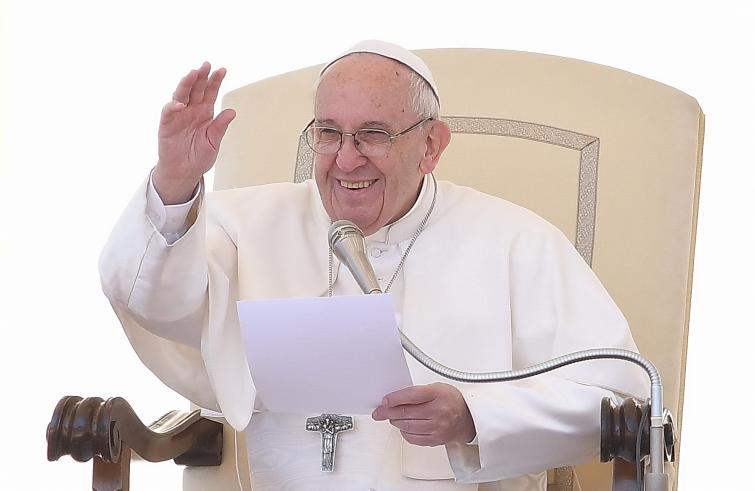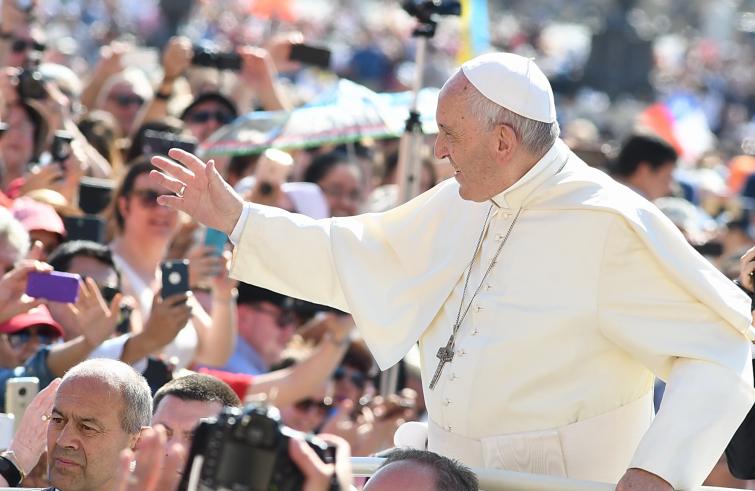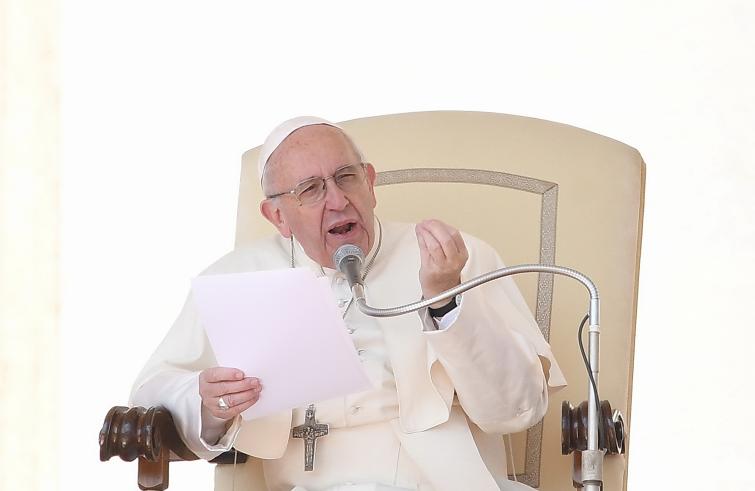General Audiences
In the past six months all 28 general audiences of Pope Francis have been dedicated to hope. Let us “return” to Saint Peter’s Square, during the summer break, to relive the key moments of the catecheses

Pope Francis has dedicated all 28 catecheses of the past six months – due to be interrupted for July’s summer break – to hope. Christian hope is an anchor, a helmet, a sail. It has the face of Rebecca, Judith, Mary Magdalene, and of all courageous women and mothers. It teaches us to walk along the path, as the two disciples of Emmaus, to surprisingly discover that there is always One who always walks with us, present at every crossroads of our life. Our mission is to be sowers of hope, close to those most in need in particular: the poor, the last, the excluded. From Saint Peter’s Square the meeting is adjourned to another “square”: the Heavens

The virtue of the small. In the first Wednesday audience dedicated to hope (7/12), the Pope explained its urgency by comparing it to a child: when we are “before a child, a smile comes to us from within.” Hope means to continue believing, in every circumstance, in spite of everything:
“Life is often a desert, it is difficult to walk in life, but if we trust in God it can become beautiful and wide as a highway.”
Hope is knowing that evil will not triumph forever; there is an end to suffering (December 14 2016).
Hope is the figure of a woman. Francis underlined it on several occasions. The first to be mentioned is Rachel, who speaks to us of the hope lived in sorrow, in bitter tears, inconsolable before a death that is impossible to accept. Even today, many mothers like Rachel teach us that in life tears can sow hope.
“Women are braver than men”,
the Pope said departing from his written speech on January 25 speaking of Judith, who was courageous in her faith and deeds, who spoke to the people with the language of faith, that is the language of hope. Hope is a pregnant woman, who day after day learns to wait to see the face of her son: it is the fresco of the audience of February 1st. Hope is to give life, not to possess it. Francis reiterated on April 12: when women give birth to their child they deliver with pain, but immediately after they are happy because they have given birth to another life. Mary Magdalene is the stubborn woman, the Pope said, the first to arrive at the sepulchre.
“Christian life is not woven of soft joys, but of waves which engulf everything.”
The revolution that transforms her existence, just like ours, starts with a name that resonates in the garden of the empty sepulchre: “Mary!”.

God does not disappoint, idols do. “God never disappoints, but idols always disappoint”, because they are false hopes, Francis cautions on January 11 . Jonah, the prophet that went forth, sent by God to Nineveh to convert its inhabitants, was well aware of this. Hope also has a community breath (February 8), an appeal “not to build walls but bridges”, each one carrying the other person’s weakness: “One who is enclosed within his own wellbeing does not know hope.” If we understand that everything is a gift, we are at peace (February 15). For in the Church there is no “first class” and “second class” the strong against the weak. (March 22).
The desert and the Creation. The path of hope is exacting, it entails the fatigue of crossing the desert, facing ordeals, temptations, illusions, mirages, Francis said during the Ash Wednesday audience. It’s an appeal to responsibility, to always extend our gaze to the Creation, for “when a human being allows himself to succumb to selfishness, he ends up defacing even the most beautiful things that have been entrusted to him. (February 22)
Love is not for show. Love, the exercise of charity, is the loftiest vocation of a Christian faithful, our vocation par excellence. It is also tied to the joy of Christian hope. Hypocrisy can insinuate itself anywhere, even in our world of love, the Pope warned in the audience of March 15.
“Truly loving is appreciating all the little everyday things”:
it is not for show. And we are hypocritical also when we act as the officials of charity, as if we possessed its “trademark.” Nobody can live without love, is the theme of the catechesis of June 14, a deep psychological reflection on the melancholy of our times.
“Much of mankind’s narcissism conceals a feeling of loneliness and orphanhood”.
The only medicine is the embrace of a father who always loves us, all of us, the good and the bad, to whom, in the Christian prayer par excellence, Our Father, we refer to as “Abbà”, a Hebrew word that cannot be translated in its mystery. In fact even the Apostle Paul does not feel up to translating it, the Pope underlines in the audience of 7 June. Some translate it as “dad, papa”, while Abba “is a term which is even more intimate than ‘father’”.

A migrant soul. Christians have a migrant soul, for their lives have an anchor in heaven. It’s the metaphor chosen for the audience of April 26: Christians are a people that walks,
“Even passing through parts of the wounded world, where things are not going well, we are among those who still continue to hope.”
The therapy of hope. We are the disciples of Emmaus, for it is there, on that path, that was born what the Pope defines, on May 24, “the therapy of hope.” The secret of the road leading to Emmaus is simply this:
“God will walk with us always, always, even in the most painful moments, even in the worst moments, even in moments of defeat.”
We are not alone: our travel companions are the saints, angels with a human heart and face (June 21), always here, hidden in our midst.